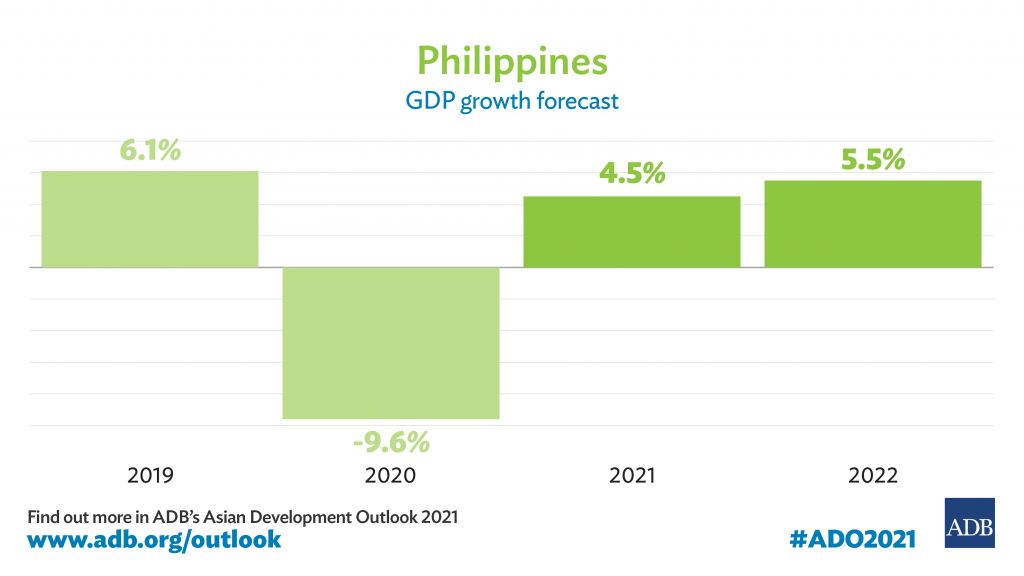From ADB – Asian Development Bank
MANILA, PHILIPPINES (28 April 2021) — Public spending on infrastructure and social assistance, better progress in the country’s coronavirus (COVID-19) vaccination drive, and a steady recovery in the global economy will underpin growth of the Philippine economy this year and the next, according to a new report from the Asian Development Bank (ADB) released today.
The Asian Development Outlook (ADO) 2021, ADB’s flagship economic publication, forecasts the Philippine economy to grow by 4.5% in 2021 and 5.5% in 2022. Substantial progress in the country’s vaccination rollout will help restore consumer and business confidence, though uncertainties over how the pandemic will unfold globally and domestically can pose risks to growth prospects.
“Our 4.5% growth forecast is at the lower end of economists’ estimates, so there are upsides to this projection,” said ADB Philippines Country Director Kelly Bird. “Priority should be given to addressing the scarring effects of the pandemic on private sector employment. Programs supporting workers and firms impacted by labor market adjustments and reforms to boost productivity growth and investment will help counter the negative effects of the pandemic on employment over the medium term.”
The government’s expansionary fiscal program and accommodative monetary policy will put the economy on a firm recovery path by the second half of 2021. The report says government plans to strengthen labor market programs and assist in the recovery of sectors badly affected by the pandemic, including agriculture and tourism, will further support a pickup in the economy.
Challenges remain, however, including uncertainties over the course of the pandemic and the emergence of new coronavirus variants across the globe. The Philippines’ COVID-19 vaccine rollout may suffer from global supply shortages in the short term, and local community quarantines could be extended to curb the spread of COVID-19.
Inflation is forecast to rise to 4.1% in 2021, up from 2.6% in 2020, due to rising global commodity prices and other supply-side factors. For instance, the African swine fever has resulted in disruptions to the pork supply in the Philippines. Inflation is expected to ease to 3.5% in 2022 as government takes measures to address supply-side pressures.
The current account surplus is forecast to narrow to 2.5% of gross domestic product in 2021 and 1.8% in 2022. Merchandise exports are expected to increase with the rise in global trade, as imports, especially capital goods, rebound to support public infrastructure development.
ADB is committed to achieving a prosperous, inclusive, resilient, and sustainable Asia and the Pacific, while sustaining its efforts to eradicate extreme poverty. Established in 1966, it is owned by 68 members—49 from the region.

